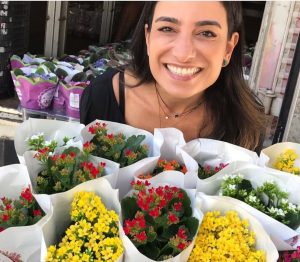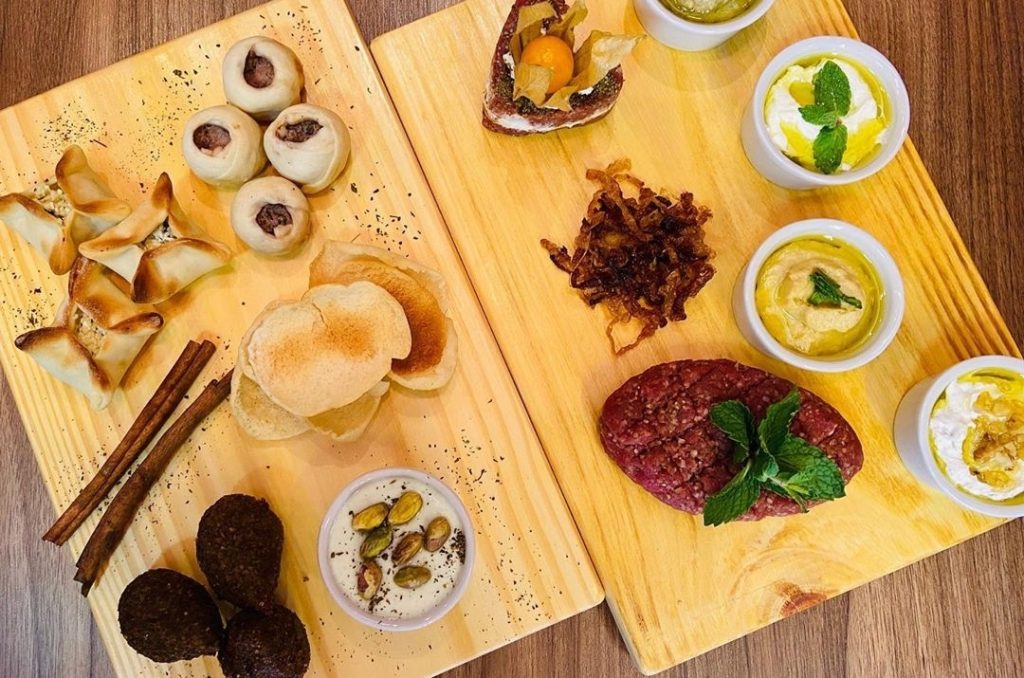São Paulo – The freshness of key ingredients in dishes by Mimos do Líbano comes straight from the Arab country. Chef and brand founder Sâmia Raule Sassine is a daughter to Lebanese parents, and she keeps alive her connection with the country where much of her family still lives. “They never lost their connection with Lebanon. We’re from an area near Tripoli, that’s where my whole maternal family is. In 1990, we, the grandchildren, began going back (from Brazil to see Lebanon). Since we own land there where olives are farmed, there’s always someone going: an uncle, a cousin, my father or my siblings. They’ll always ask me what I want and then they’ll bring that back to me,” she said.
Sassine is the only one in the family who’s in the food business. “No one in my family is in the restaurant business. Almost everyone’s a doctor. I used to be a lawyer and I decided to take a break, and I used to cook at home a lot. And we started having leftovers, so I’d send that over to people. And then people began to order. I spent a year just making dry curd, and that grew bigger and bigger. My library at home became my kitchen, and eventually things got too big for my house,” said the chef, whose shop is in a mall in Vitória, Espírito Santo.

Sassine has lost count of how many times she traveled to her family’s home country. “Lebanon is a lot like Brazil when it comes to the joie de vivre and comfort. And they really like us Brazilians, they will make us feel really welcome. I could live there,” she said.
Apart from the family olive oil, which fellow chefs appreciate, Sassine uses zaatar and pepper from Lebanon, which patrons at her takeout buffet usually request. She also does events and dinners at people’s homes. “I use that a lot on a day-to-day basis, and whenever I go cook at someone’s home. It mostly the zaatar and the pepper, which my customers love, and I’m worried about running out,” she explains.
Before the coronavirus caused most national borders to shut down, Sassine used to be able to restock every two months as her people would travel to Lebanon and back. Now, she has a stockpile and is hoping to get more ingredients from an uncle soon.
From tradition to creation
Her business is eight years in and has a staff of four. Despite her bigger business, the chef makes a point of keeping the food fresh and cooking every day. “We range from traditional Arab food to recreations. My hummus, for instance, I’ll season it differently. I have vegan options, I’ll add mushrooms. I have quinoa and lentil tabbouleh. I have lactose-free dry curd. I’ll adapt it a bit,” the chef reveals.
Sassine’s favored service is cooking to order for dinners or parties at customer’s homes. “They can either fetch the food or we’ll send it down, or else I’ll go down to people’s homes and set the table. At times I’ll show up and do the whole event, which is what people call ‘chef at home.’ What I like best is to cook for people at their places. I like to go in knowing what I’m serving, so I’ll give them a call and then do something very personal. It’s encouraging, you know? To please people through cooking,” says Sassine, who keeps portions flexible and changes up ingredients to suit each customer’s needs.
The fulfilment she got from her new profession made her not go back to practicing law. She believes the career change was a fortunate twist of fate. “My father owns a professional uniform factory, but I’m the only one running a business out of my generation of ten cousins. I make much less money these days, but my days are nicer. Some days I’ll go in the kitchen at 6 am and my staff knows: ‘She’s about to create something new’,” she says.
Translated by Gabriel Pomerancblum




